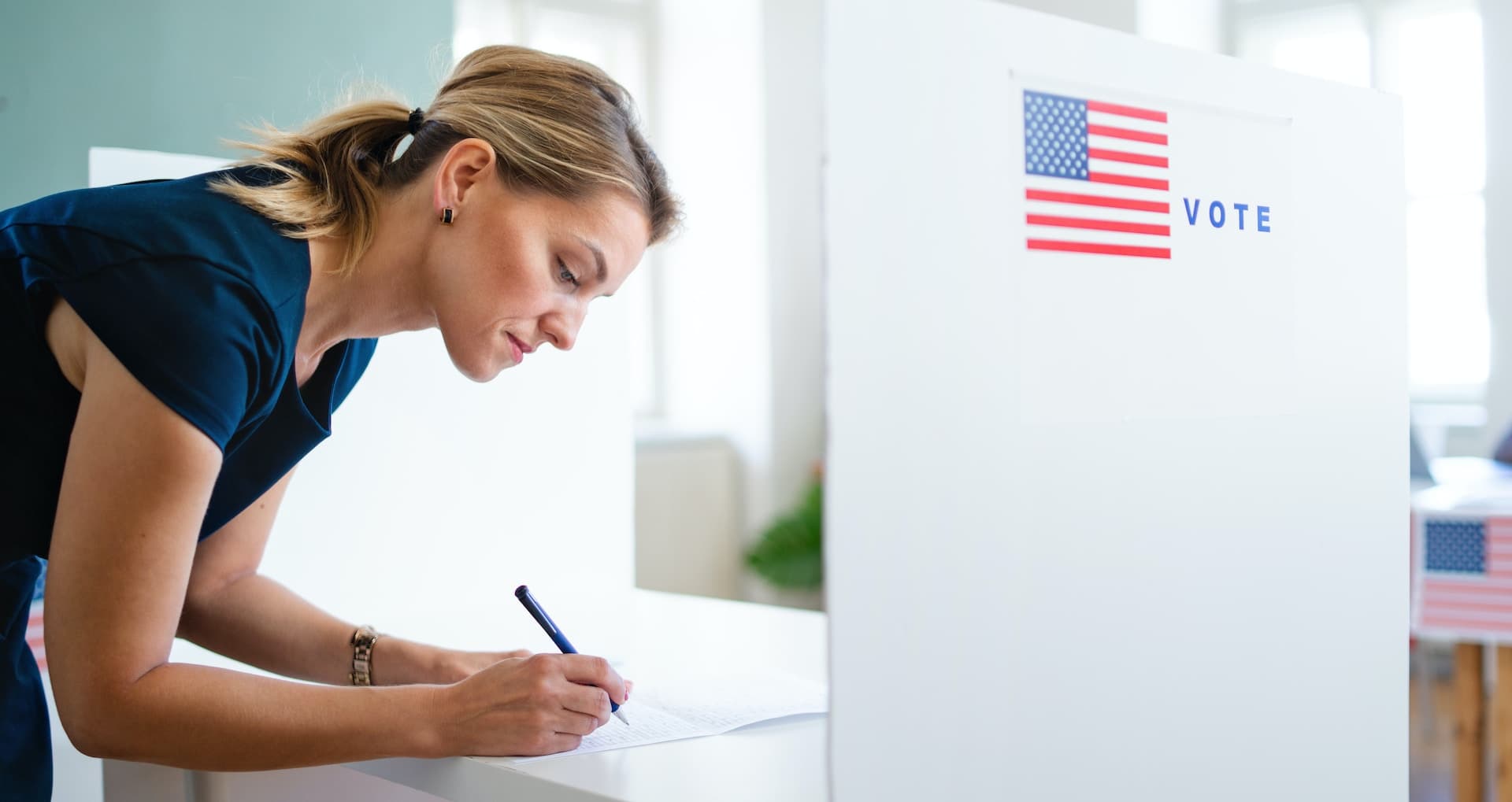Louisiana Gov. Jeff Landry Wants to Take Regressive Step on Voter Access and Rights in His State

Republican Louisiana Governor Jeff Landry stirred controversy earlier this week when it was revealed that one of his legislative priorities is to dismantle the state's nonpartisan election system and transition to party-run primaries.
Although the exact details of Landry's proposal have not been released to the public, he has faced immediate pushback from various quarters, including primary reform groups and prominent politicians such as US Senator Bill Cassidy -- who called the idea "crazy."
For the past half-century, Louisiana has utilized a unique election system colloquially known as a "jungle primary." In this system, all candidates run on a single ballot in November. If a candidate secures over 50% of the vote, they win outright. Otherwise, a runoff election is held in December between the top-two candidates.
While many races are decided in November, those that aren't experience lower turnout in the subsequent runoff election.
The system has become a staple in Louisiana politics. It is popular among voters and candidates alike. In fact, when state lawmakers switched to a semi-closed partisan primary system in 2008 and 2010 for federal elections only, it sparked confusion among many voters who didn't know why they could vote in some elections, but not others.
It didn't take long for legislators to reinstate the jungle primary for all elections -- a clear sign that voters prefer a nonpartisan system.
Nonpartisan election systems explicitly serve the public interest of giving all voters a more meaningful say in who represents them. Party-run primaries paid for and administered with taxpayer assets not only shut out a large segment of the voting population but empower party leaders and a political minority to disproportionately affect electoral outcomes.
It's notable to mention that though Louisiana has a nonpartisan system most of its elections are not competitive. Most of its congressional delegation, for instance, win re-election in districts that are safe for them. Moving to a partisan primary system would allow them or their party to secure a win in primary elections with substantially lower turnout.
In many cases, this would give Republican leaders more power over who wins elections, but prominent Democrats also support moving to a closed partisan election system.
Jungle Primary vs Other Nonpartisan Systems
There is a common misconception when different primary systems are discussed in the press. The term "jungle primary" is often used to refer to the nonpartisan, top-two system in California -- but this is a mistake. The "jungle primary" only exists in Louisiana.
California has a system for all state and non-presidential federal elections called "Top-Two." All voters and candidates, regardless of party, participate on a single primary ballot earlier in the year, such as March or June, and the top-two vote getters move on to the general election.
It doesn't matter how much of the vote a candidate receives in the primary. They could garner 70% of the vote and they will still face the candidate with the second-highest vote count in the November general election.
Unlike in Louisiana, it is a guarantee that all elections are decided when most voters, historically, participate.
The "Top-Two" systems in California and Washington have provided a model for what direction many primary reform advocates and states want to move their electoral processes. Alaska, for instance, adopted a Final Four system in 2020, which operates similarly but advances four candidates to the general election -- again, regardless of party.
Nevada could become the first state in the nation to adopt a Final Five voting system if voters approve the proposal for the second election in a row in November. A Final Four or Final Five system is gaining support in states like Arizona, California, Wisconsin, Arkansas, Florida, and more.
Louisiana Voters Will Have to Wait and See
With concerns about voter turnout, confusion, and the influence of political parties on the electoral process, the fate of Louisiana's election system remains uncertain. Gov. Landry may not have a full proposal for the public to view, but voters in the state should be aware that he and other party leaders want to restrict their right to meaningful participation in elections.
 Shawn Griffiths
Shawn Griffiths


